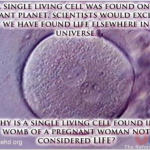I am of the opinion that love is more than just a warm, fuzzy feeling that you get when you look at that “special someone.” Warm, fuzzy feelings are often a part of love (and are often an important part of love because they can provide us with the energy for action). But it’s also important to talk about love as an action: the act of treating someone with care, with respect for their humanity, etc.
Love is not just about romantic feelings. It’s not just about nice feeling you get when you think about family members or friends. Love is about how you treat others, even when the nice feelings aren’t there for whatever reason.
Feelings and emotions are really important, and I don’t want to diminish them. But I also want to say that disconnecting love from actions is extremely dangerous. It’s often used to justify abuse–abusers will intentionally hurt someone (which is not an act of love), and still convince their victims that they love them, based on the idea that love is a feeling alone.
I know many Christians would agree with me that actions are just as important as feelings when it comes to love. Yet, when I start to call out sexism in the church, I realize that many Christians hesitate to accept the idea that the same is true of hate.
Hate, like love, is about action, not only feelings. Often, feelings are associated with acts of hatred. But, probably more often in our society that is built on oppression, people commit acts of hatred without even being conscious that they are doing so. Hate is not always associated with strong, negative feelings, but those acts of hatred still do harm.
The means do not justify the ends.
This is true of sexism, which is a system of hatred in that it promotes dehumanization and oppression (and the same for racism, homophobia, transphobia, ableism, etc.). We live in a society where we’re all trained to be sexist from birth. It’s a hateful act, but it comes so easy to us (even to women, who internalize sexism and end up acting in hatred to ourselves and to other women) that we don’t always even need the energy generated from hateful feelings to act hatefully toward women.
We’re reluctant to admit this. Many people view sexism as a feeling of hatred, not an action. Like the abusers who can hurt others and still claim they are loving because of their feelings, sexist people often commit sexist acts and claim that they are not sexist because they have positive feelings toward women.
Because sexism is seen as a feeling, not an action, when I call someone a sexist, I’m often accused of attacking, or using an ad hominem fallacy by many of the same people who would agree with me that love is not just about feelings.
But sexism, like love, involves actions. Sexism can be sexism regardless of what feelings accompany sexist acts.
“You are being sexist” is not an insult. It is not an attack on the character of a person or a claim to know a person’s mind and motives.
It is a description of one’s actions.
You don’t have to know someone’s feelings to know whether or not their actions are sexist. Sexism has clear definitions. Actions that dehumanize women, take away their autonomy, shame them for trying to be fully human, or force women into strict gender roles are sexists. Negative feelings may be associated with such acts but they do not have to be present for sexism to exist because sexism is more than just a feeling.
Saying that someone can commit acts of sexist hatred out of love for women is blasphemy to the name of Love. It is taking the name of Love in vain. It is calling good evil and evil good.
I don’t want to hear anyone else claiming, but “so-and-so LOVES women!” Perhaps they act in love in other ways toward women, but this does not diminish the fact that sexism is an act of hatred. It cannot be done in love.
.











